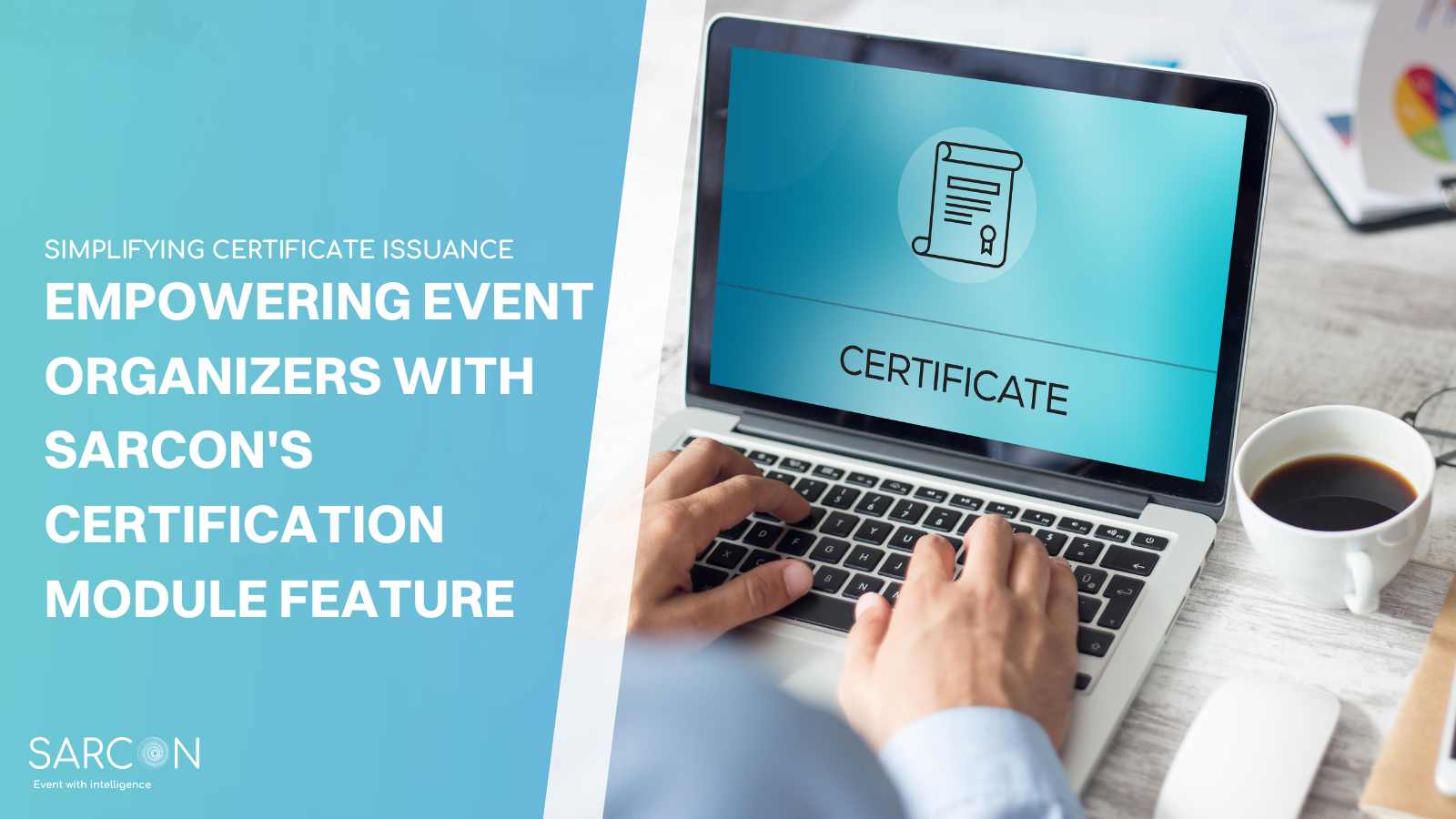A few years ago, the idea of holding virtual events would have been met with scepticism at best. However, things have changed drastically since the COVID-19 pandemic. The popularity of virtual events has increased as they facilitate a less disruptive shift to a distributed workforce.
But even before the pandemic, more and more people were opting to participate in events virtually due to the many benefits they provide over traditional in-person gatherings.
For one, they are more cost-effective since there is no need to rent a venue or pay for travel expenses. Additionally, virtual events are more convenient for attendees as they can participate from the comfort of their own homes or offices. Finally, virtual events are more eco-friendly as they produce less waste and require less energy to run.
Today there are a wide range of virtual events, each with its target audience, agenda, and technological requirements. However, virtual conferences, webinars, hybrid events, town halls, and online training sessions are the most common.
6 Benefits of Virtual Conferencing
In this era of digitalisation and technological advancements, the benefits of virtual conferencing make it an ideal solution for B2B communications. By hosting a virtual conference, businesses can save time and money while delivering high-quality events.
Here are six ways in which virtual conferencing can benefit B2B communications:
1) Improved connectivity: One of the most significant benefits of virtual conferences is that they assist businesses in making better connections with their target audience. This is because virtual conferences provide an efficient way to connect with potential customers, partners, and clients worldwide. By hosting a virtual conference, businesses can reach a larger audience and build better relationships with their target market.
2) Increased engagement: Another benefit of virtual conferences is that they offer more opportunities for engagement and interaction than in-person events. This is because attendees can use the chat function to ask questions or comment in real-time. Additionally, virtual conferences often have more breakout sessions and networking events, which encourage attendees to interact with each other.
3) Improved Communications: Virtual conferences also offer improved communication with attendees. Virtual conferences allow businesses to share information more effectively through multimedia features such as video, audio, and PowerPoint presentations. Furthermore, virtual conferences offer more opportunities for two-way communication between businesses and their audiences, and this is because attendees can ask questions and provide feedback during the event.
4) Enhanced visibility: Virtual conferences offer businesses enhanced visibility as many people can attend them. Additionally, virtual conferences are often recorded and made available online after the event, which allows for even greater visibility.
5) Increased flexibility and accessibility: Virtual conferences allow businesses to be more flexible in terms of both timing and content. This is especially beneficial for B2B event management, as it enables businesses to connect with potential clients and partners worldwide. Additionally, virtual conferences allow businesses to tailor their content to the specific needs of their audience.
6) Improved ROI: Virtual conferences tend to have a higher return on investment (ROI) than in-person events. This is because virtual conferences are more cost-effective and require less planning and coordination. Additionally, increased visibility and engagement in virtual conferences can lead to improved sales and higher conversion rates.
Virtual Events: Which Type is Right for You?
Any B2B marketer worth their salt knows that a virtual event is a powerful marketing tool. But what many don’t know is how to make the most of this tool to achieve their marketing goals. The key is to understand the different types of virtual events and how each can be used to reach your target audience.
Here is a quick overview of the most popular types of virtual events:
1. Live Webinars: A live webinar is a great way to generate leads and build relationships with potential customers. By offering valuable content, you can attract an audience and invite them to participate in a live Q&A or poll. This type of event is also a good option for product demos or announcements.
2. On-Demand Webcasts: An on-demand webcast is a pre-recorded event that can be viewed at any time. This type of event is ideal for delivering educational content to a wide audience. You can also use on-demand webcasts for product launches and announcements.
3. Virtual Summits and Conferences: A virtual conference is a great way to connect with your target audience and build relationships. By offering a mix of live and on-demand content, you can provide attendees with an engaging experience that helps them learn more about your products or services. Virtual conferences are also a good option for networking and lead generation. However, Some common virtual conferences are:
- Virtual educational fairs: Virtual educational fairs are a type of virtual conference where prospective students can learn about different colleges and universities and speak with representatives from those schools. Virtual educational fairs can be a great way to get information about colleges and universities that you might not otherwise have access to. In these fairs, there are virtual booths set up by different universities. Visitors can explore the virtual campus, chat with admissions counsellors, and learn more about the programs offered by each school. Virtual educational fairs can be a great way to learn about new educational trends, network with other professionals, and find new job opportunities.
- Webcasts: A webcast is a virtual conference or seminar broadcast over the internet. Webcasts can be live or recorded and are often used to provide training or deliver lectures, but they can also be used for marketing purposes. For example, a company might webcast a product launch to generate interest and excitement. Webcasts typically last for one hour or less, and many organisations use webcasting to reach a global audience without travelling.
- Virtual press conferences: Virtual press conferences are online events where journalists can connect with public relations professionals and sources in real time. These events can be used to announce breaking news, deliver a virtual tour of a new product, or provide an exclusive interview with a high-profile individual. A VPC can be an excellent way to reach out to key media members without incurring the cost or hassle of hosting an on-site event. And because they can be conducted from anywhere in the world, VPCs offer flexibility that is not possible with traditional press conferences.
- Virtual round table conference: A virtual round table is a type of virtual conference where participants sit at a virtual table and discuss a topic. A host moderates the discussion, and all participants can see and hear each other. This type of conference is great for networking, brainstorming, and problem-solving. It can also be used to build relationships with potential customers or partners.
4. Virtual Trade Shows: A virtual trade show is perfect if you want to showcase your products or services to a wide audience. By exhibiting your products or services online, you can reach a global audience and generate leads from anywhere in the world.
5. Virtual Town Halls: A virtual town hall is a great way to engage with your target audience and get feedback on your products or services. By hosting a live event, you can answer questions from attendees and get valuable feedback that can help you improve your offerings.
By understanding the different types of virtual events, you can choose the right event that best aligns with your marketing goals. And with the proper planning and execution, you take your business to the next level.
So if you’re in the market for a reliable virtual platform to host your next event, look no further than Sarcon. We offer a comprehensive solution that includes everything you need to run a successful virtual event.
But the question is how you can measure the reliability of a platform. You can’t simply pick something because we suggested it, but rather on how it fulfils your requirements. So let us simplify this for you.
Essential Features of Virtual Events
So what should you expect from a robust virtual event management platform?
Here are some of the most important features you should look for before making your decision:
1) Live streaming: The ability to live stream your event is essential for virtual conferences. Live streaming allows businesses to reach a larger audience and provides attendees with the opportunity to watch the event in real time. Additionally, live streaming can help increase engagement levels as attendees can interact with each other and the speakers.
2) Recording and playback: Recording your event is also essential as it allows you to make your conference available to a broader audience. Recordings of virtual events can be made available on demand, which helps businesses to reach potential customers and clients who were unable to attend the event.
3) Interactive elements: Virtual events often feature interactive elements such as polls and surveys. These features can help to increase engagement levels and provide valuable feedback from attendees.
4) Social media integration: Social media integration is also an essential feature in a virtual platform as it allows businesses to share virtual events on social media platforms such as Facebook and Twitter. This can help to increase visibility and engagement levels.
5) Analytics and reporting: A good virtual platform should also provide businesses with analytics to track their virtual events’ performance. Analytics can help businesses understand who attends their event, how long they spend on the platform, and what parts they engage with most. This information can be used to improve future virtual events.
4) Robust security: Choose a platform that offers robust security features, especially for businesses that plan to host sensitive information at their events. Try to look for a platform that offers robust security features like Sarcon’s, which adheres to the General Data Protection Regulation (GDPR) and is also ISO 270001 certified. This will ensure that no confidential information can be accessed by those with malicious intent.
Conclusion
Virtual events are the future of B2B communications; if you’re not using them yet, now is the time to start. At Sarcon, we understand how virtual events can be used to reach your target audience. Contact us today to learn more about how we can help you make the most of this valuable marketing resource.



